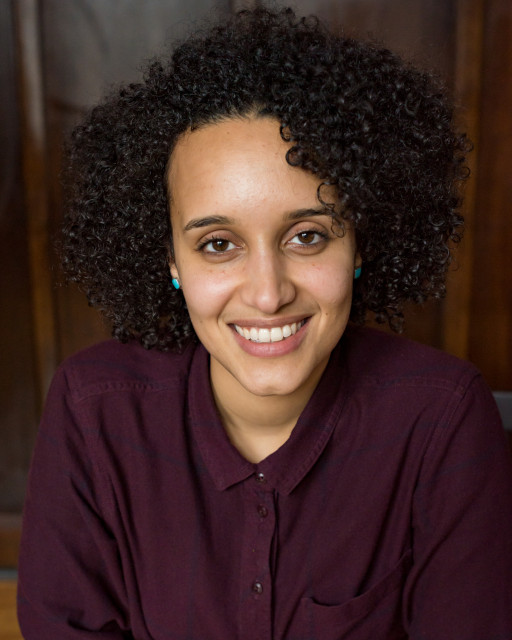by Hana Worku
2007 Saint Paul, Minnesota, United States
In honor of my high school graduation, I received a canvas polar bear with gloss button eyes and a mortarboard cap perched to one side. It was the latest in a series of unasked-for gifts. The bear came with a fabric marker pen. I was told everyone at the party should sign it. I had not yet understood that accepting gifts with specific demands was a love language I did not need to speak. This is how I ended up eighteen years old, walking around my graduation party with a stuffed animal.
My paternal grandmother was visiting at this time. When I got to her chair, which smelled of musk perfume, I yelled into her good ear that I needed an autograph. My grandmother squinted back at me, confused. My father came over to help, guiding her hand through each letter. It took half a minute to get through her name. The arthritis in her fingers must have bothered her. Later that day, I examined each of the bear’s new tattoos. I saw that my grandmother had written out four wobbled characters to sign her name straight across the bear’s back. አሰፋሽ
Within a year, the bear landed in a trashcan. It rested sideways next to bottles of dried up nail polish, old tissues, and Teen Vogue magazines. I had thrown everything out as I rushed to the college dorm, ready to start a life where I didn’t have to listen to family and what they say.
1975 Addis Ababa, Ethiopia
In honor of high school graduation, the socialist government in Ethiopia announced a new mandate. All students were required to complete a service project to be eligible for college. Participation in the nationwide literacy campaign was one way to complete the requirement. Hundreds of makeshift classrooms were set up with teenagers as the teachers. Classroom materials included copybooks and short stories reflecting Marxist-Leninist ideals. This is how my aunt, Erundi, ended up seventeen years old, teaching phonics and single digit mathematics to housewives.
The local cadre assigned Erundi to a classroom in her own neighborhood. A printed alphabet hung on top of the blackboard. Erundi trained students in the alphabet verbally at first, reciting sections of the Ge’ez abugida aloud. Her adult students recited the letters back, an odd reversal of roles. Weeks later, they progressed to combine letters into words and phrases – he eats bread, she drinks water. Erundi’s students were thirty to seventy-five years old, all women, many with children or even grandchildren. They liked to linger after class ended each day to chat and catch up, happy to escape chores at home.
My grandmother was one of Erundi’s students. My aunt says her mother was the fastest student in class. She interrupted too much with commentary, though. For example, my aunt tried to give a pop quiz and my grandmother broke the silence to complain, “you should help them, you should be teaching more.. they don’t know the answers to this.”
2023 Minneapolis, Minnesota, United States
Someone said my grandmother “probably had a third-grade education.” For years, I never questioned what that meant. It all makes sense now. The reason my grandmother needed help from her children to write her own name. The reason my grandmother’s childhood stories were only about working, going to the market, and washing clothes in the river. She never went to school.
My grandmother gave me an unasked for gift. It came without demands. Even in the landfill, the letters my grandmother wrote to sign her name are something significant, something she worked for, something that came to her only halfway through life. The letters have a meaning that I did not recognize even though I write about it now.
There is some irony here. It’s the kind that is symbolic of intergenerational exchange. From parent, to child, to grandchild. What one person struggles to gain, the next person values but does not pass on, and the next takes for granted. And then what? What comes after that?

Hana Worku
“I have always loved recording and writing family history for myself. I am still learning to use family stories, though, in the creative nonfiction work I share and publish for others to read. This piece is an example of my recent experiments in this area, weaving together a snapshot memory from my own life with family history around literacy.”
Hana Worku is a writer, technologist, and organizer from the Midwest. Her creative work explores how voices, stories, and places rub against each other in time. She is a Loft Mentor Series Fellow for 2023-2024.
This work is copyright © 2024 by the respective author and remains their sole property. No part of this page may be copied or reproduced without consent of the author.